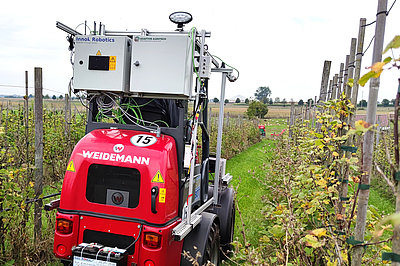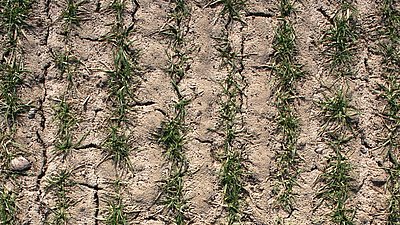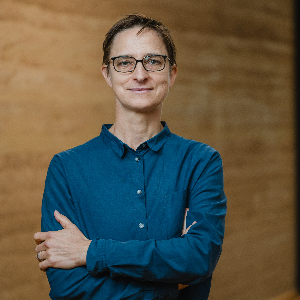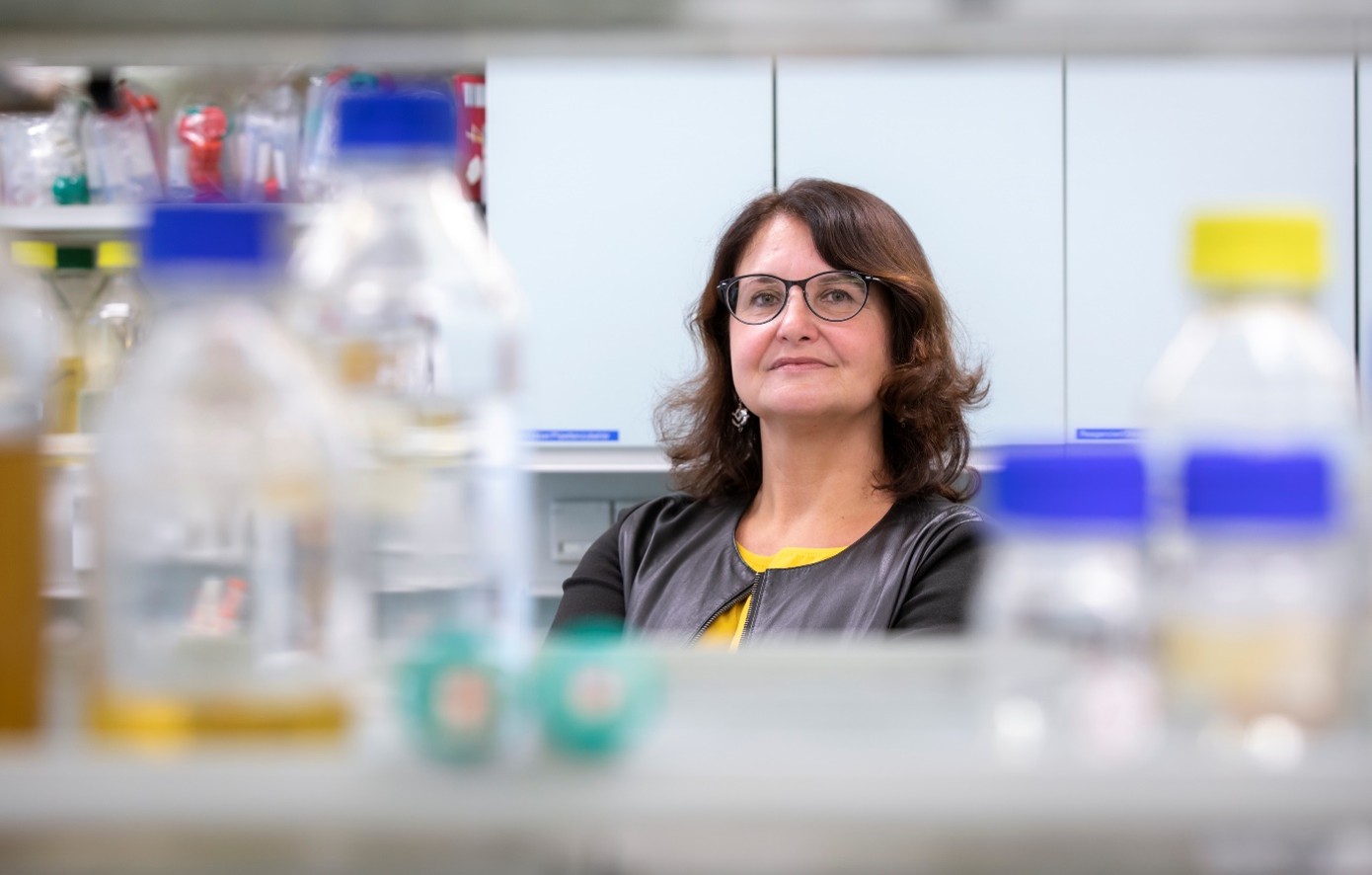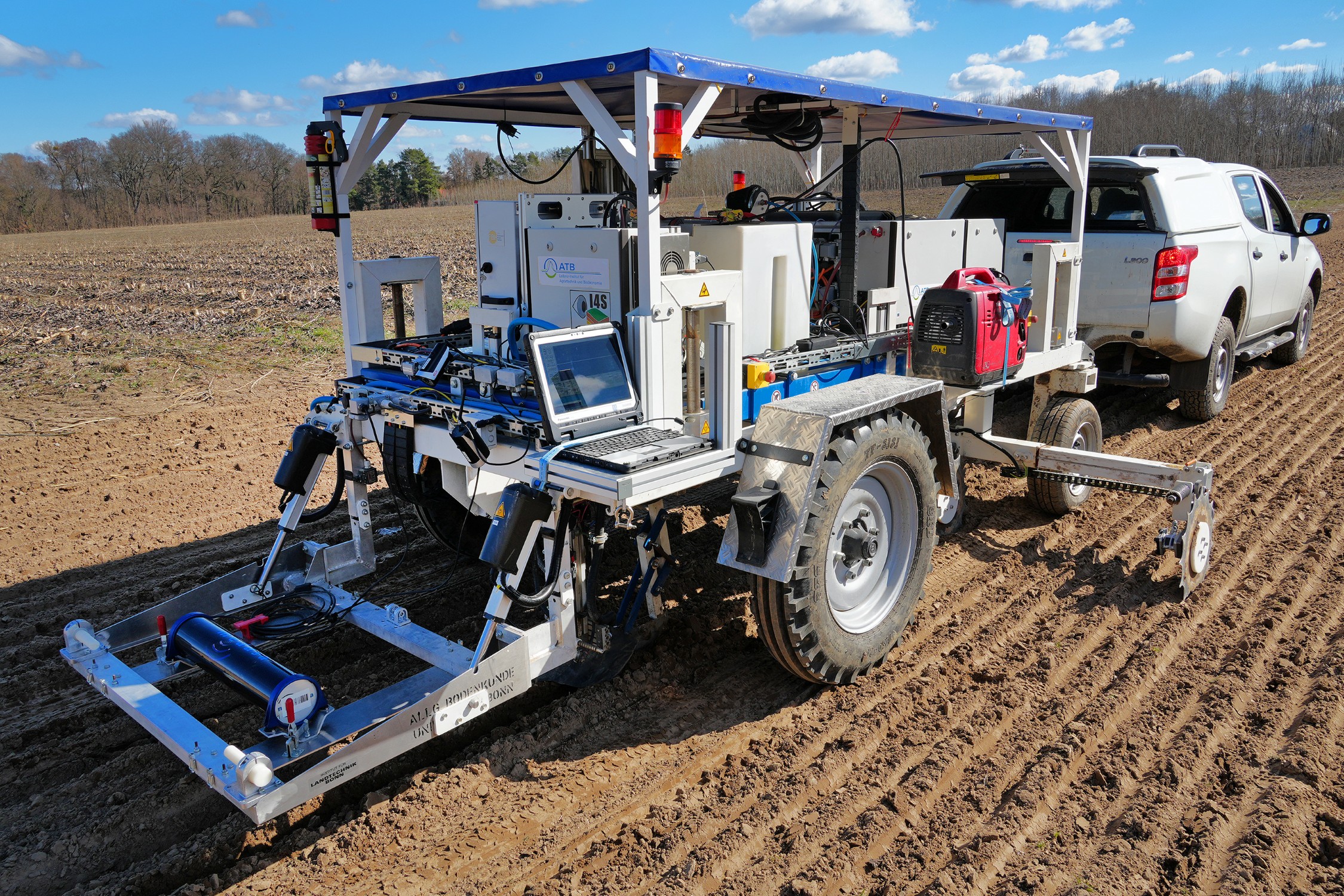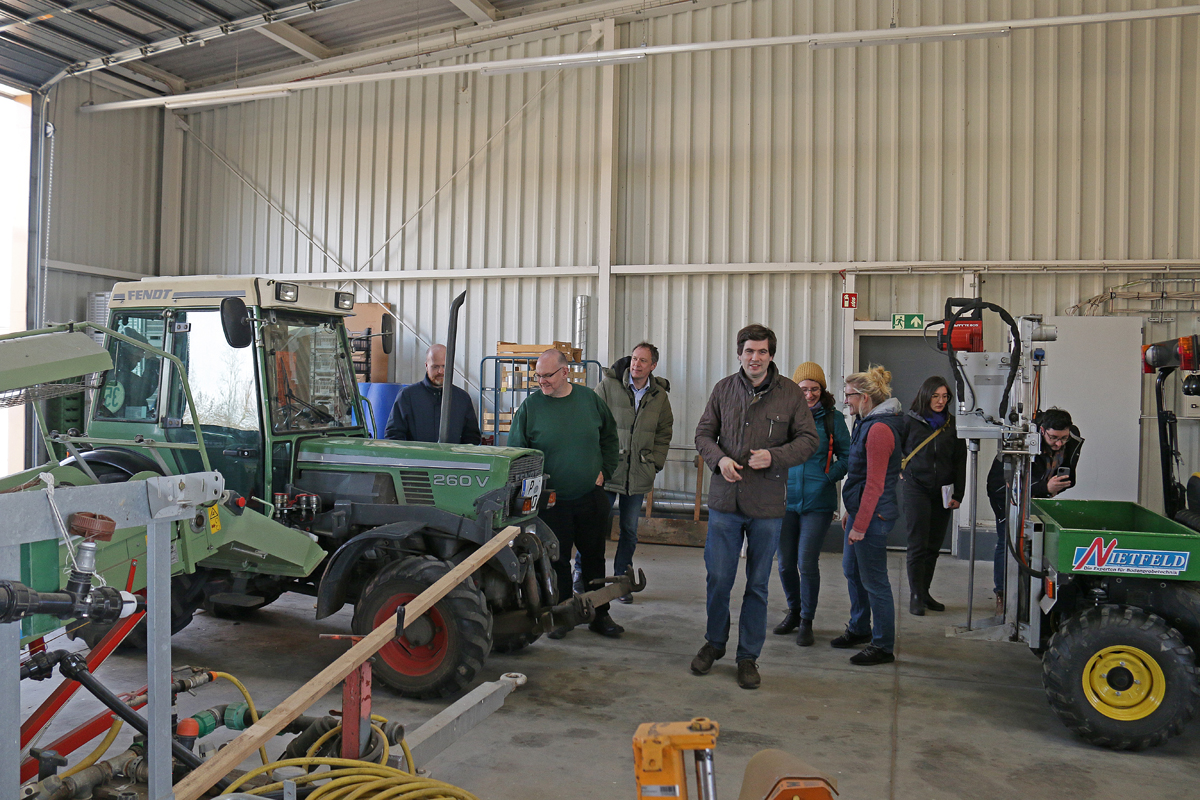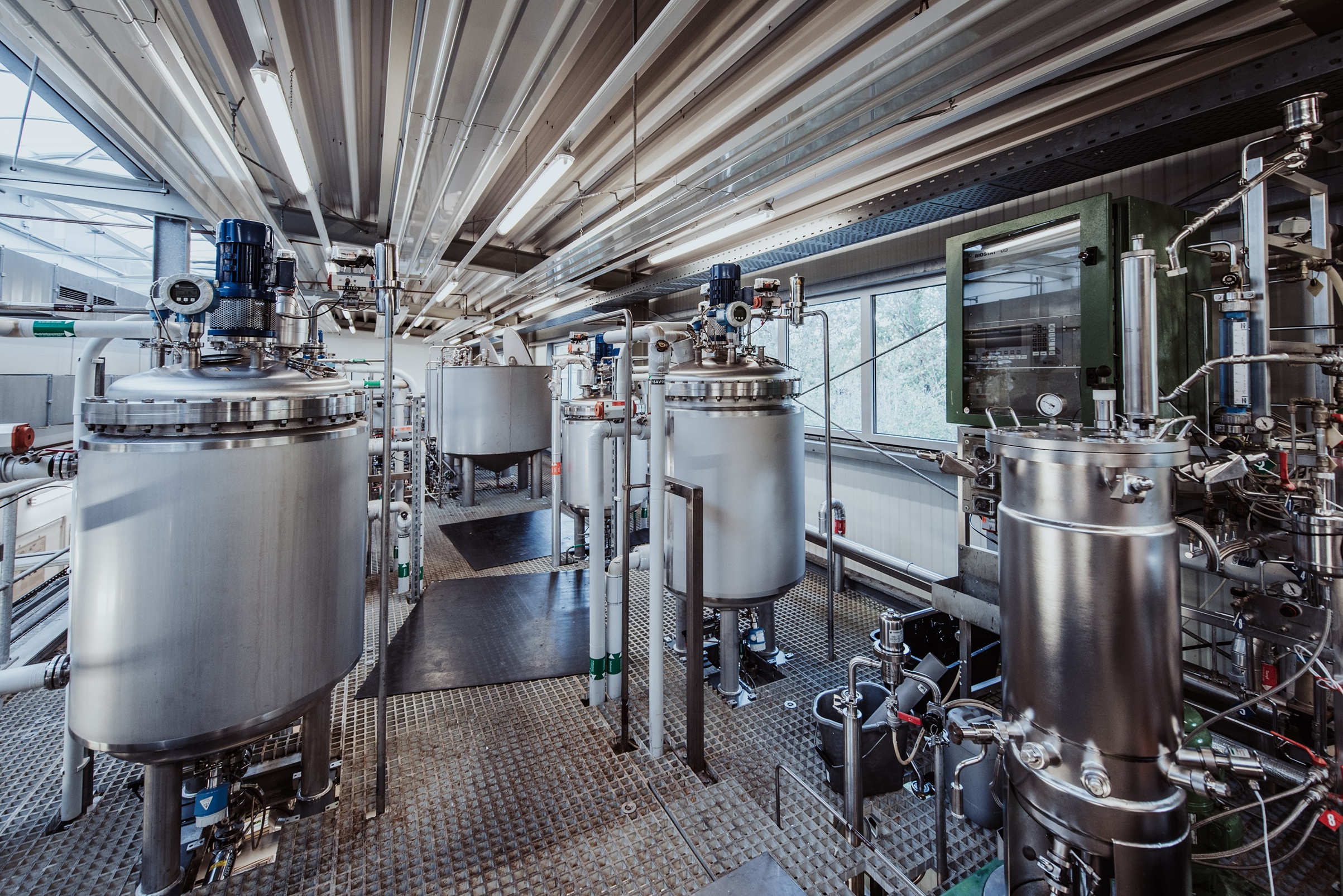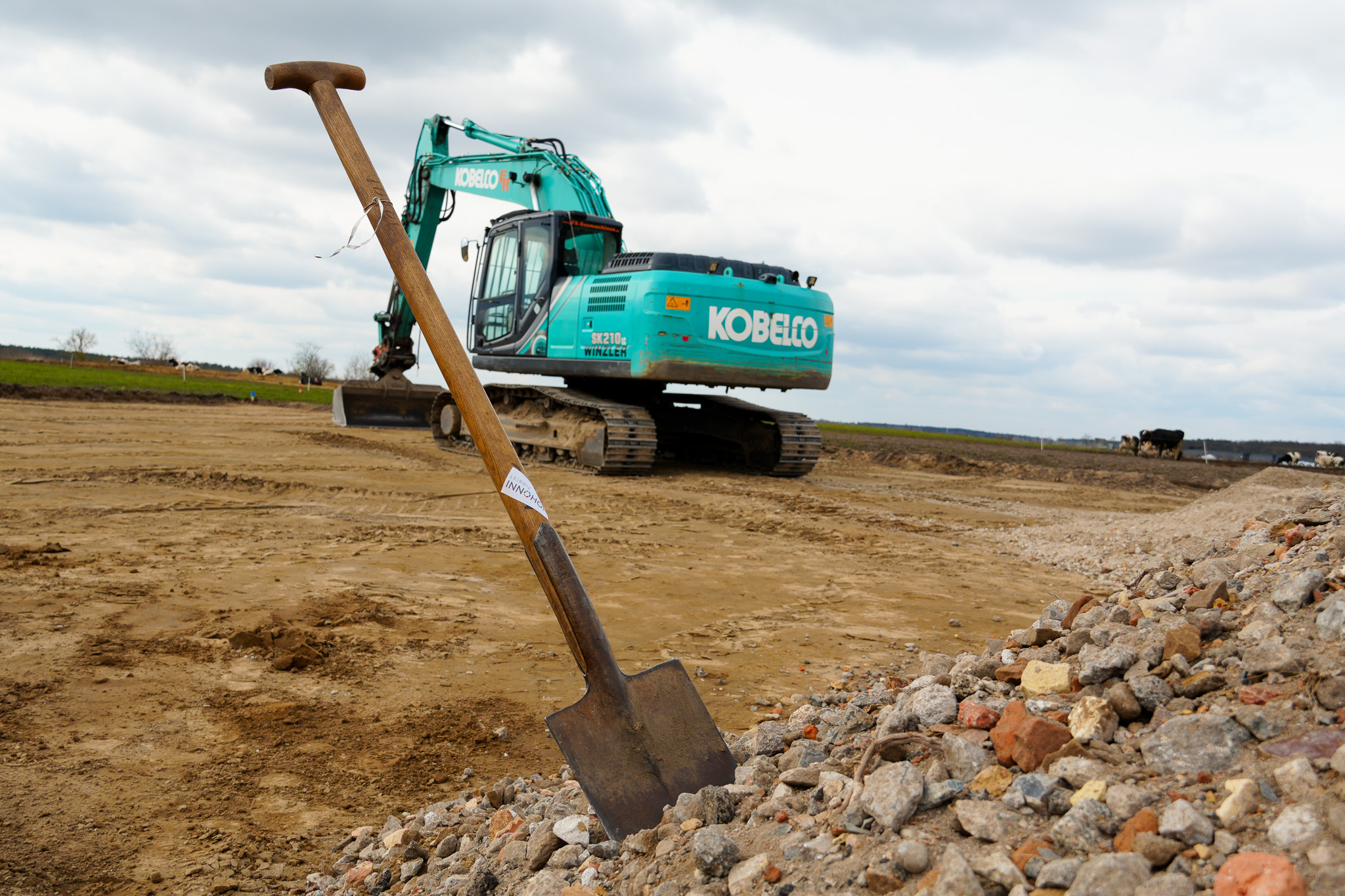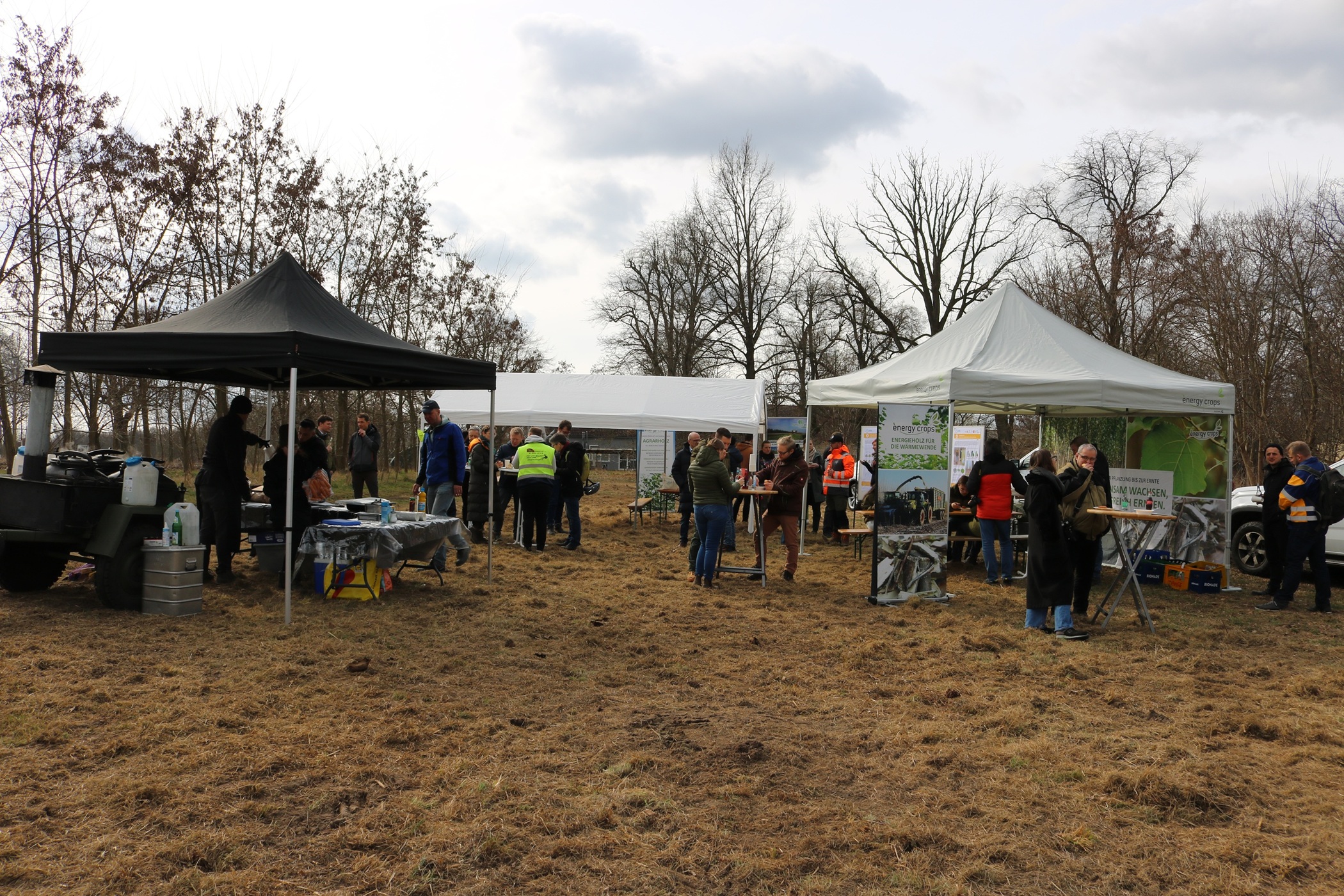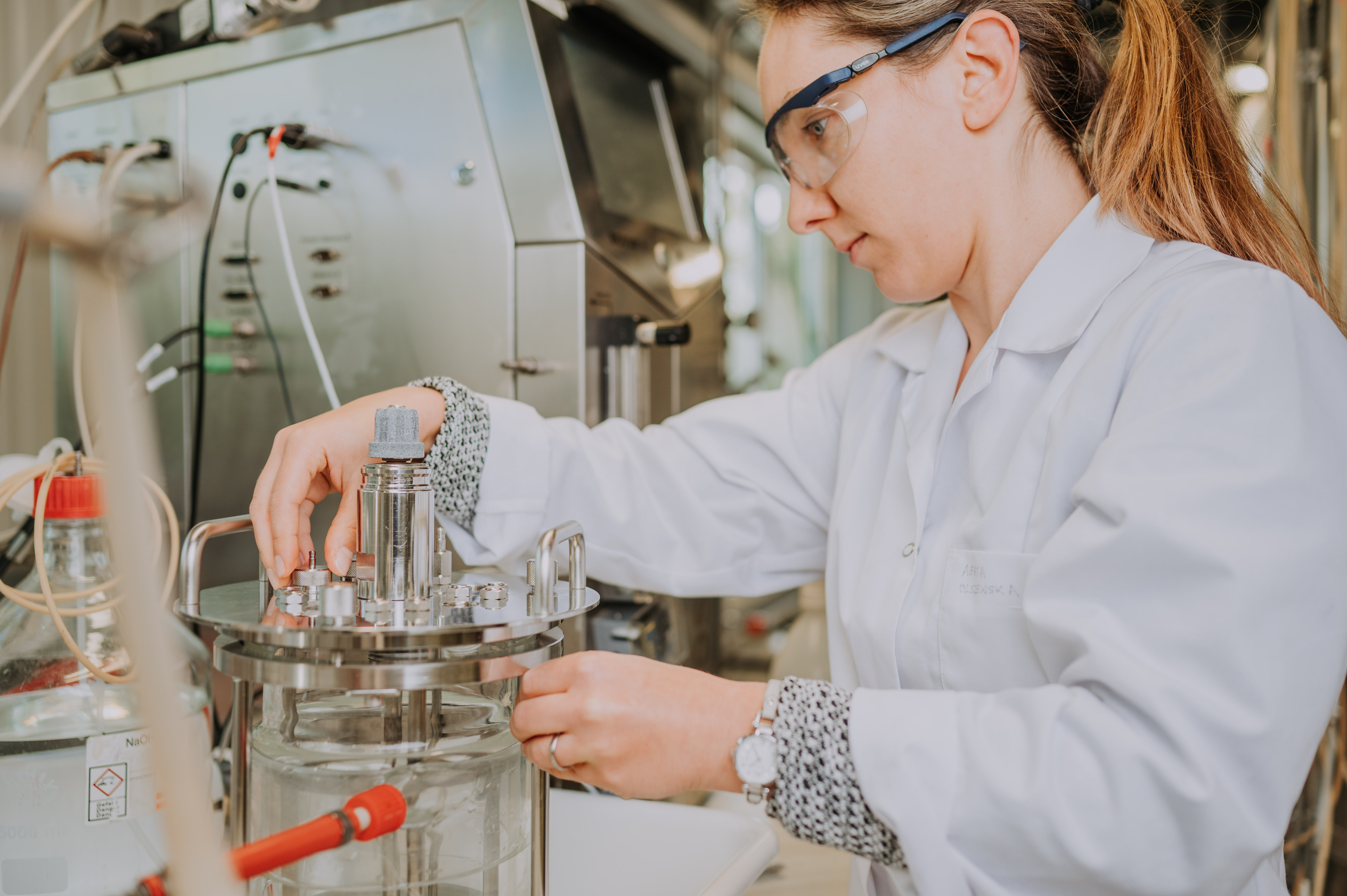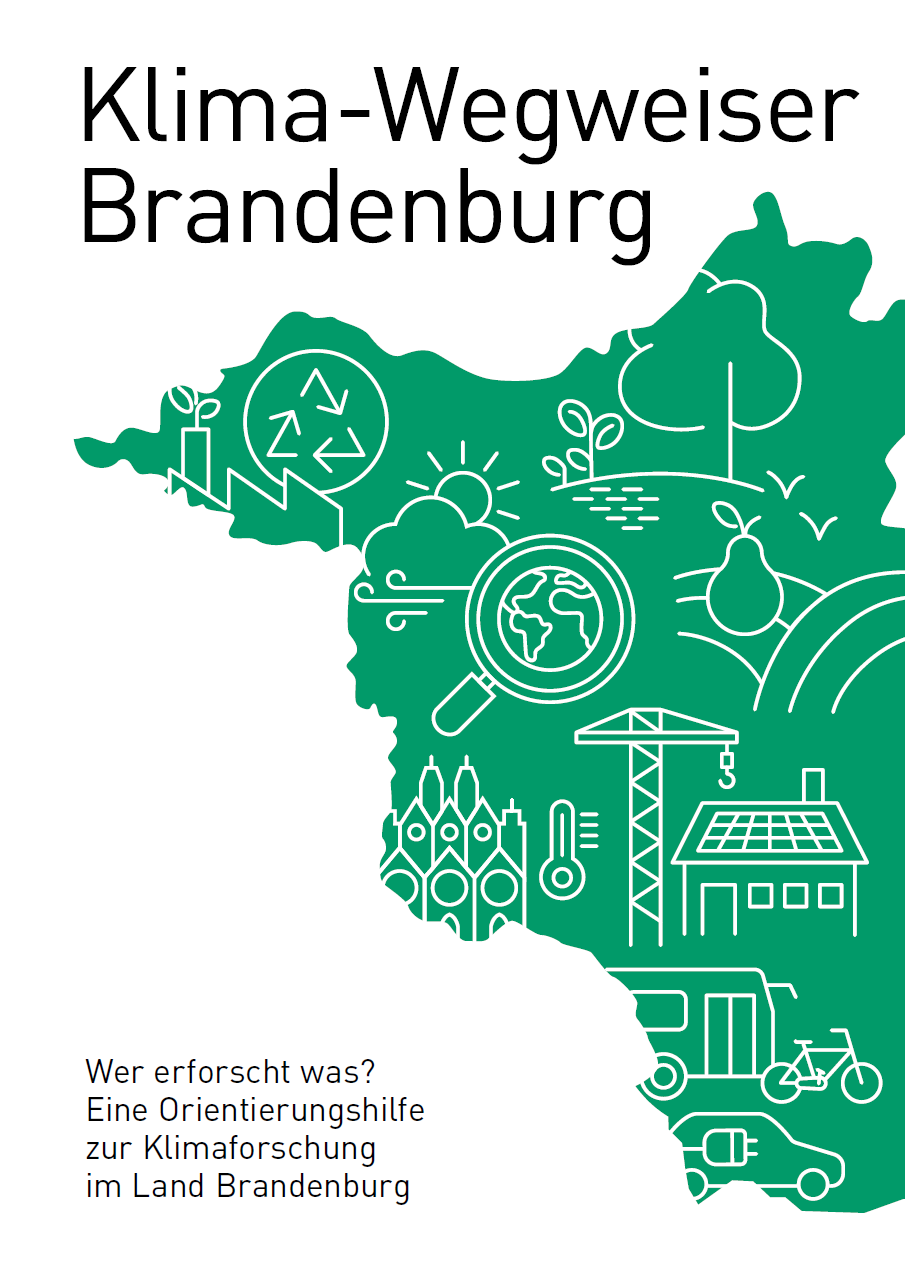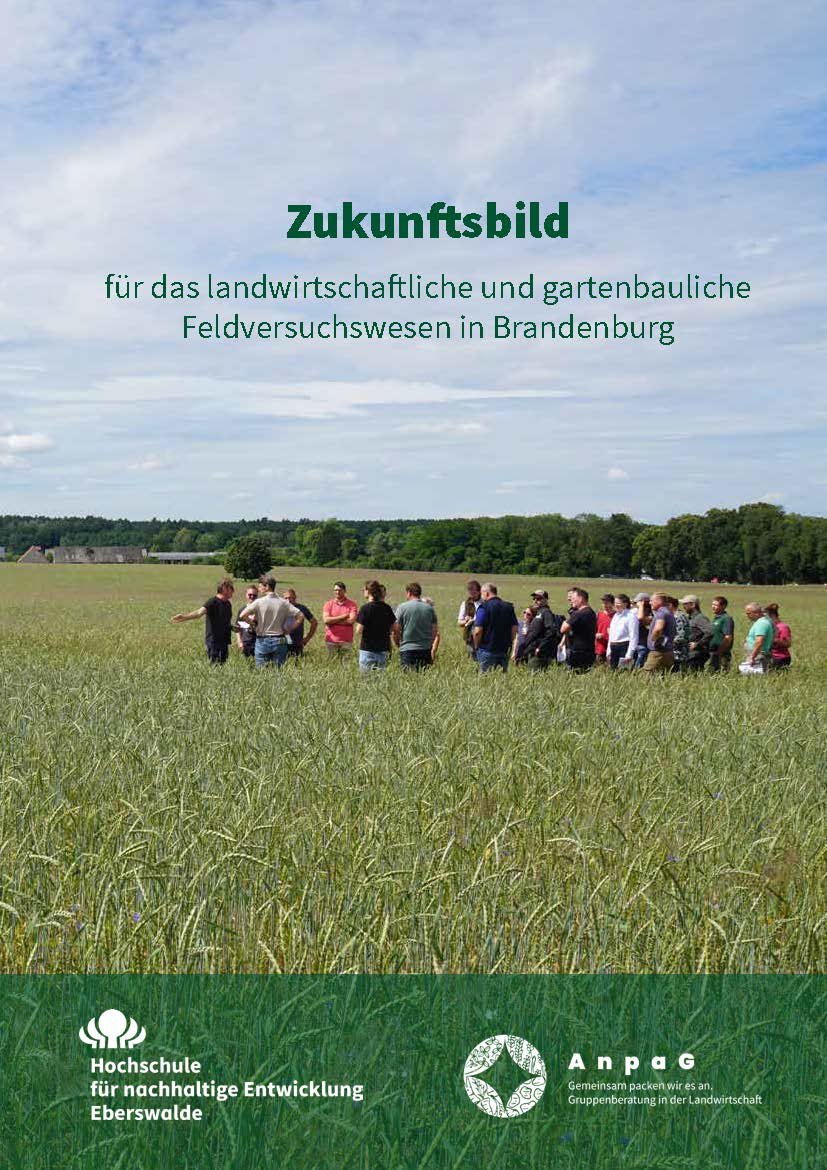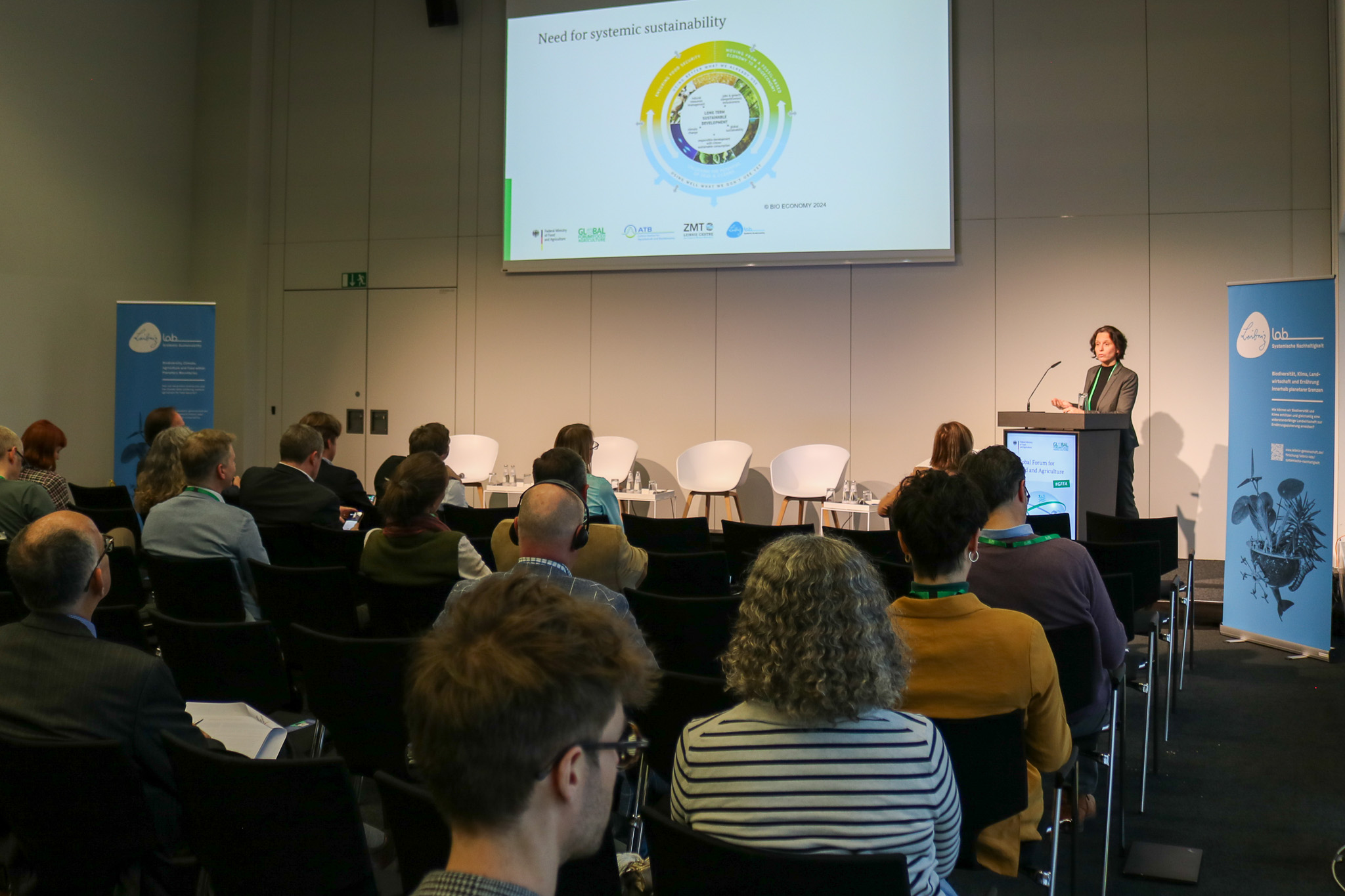Research for an environmentally controlled, diversified crop production
We develop technologies and processes for agricultural crop production. In the bioeconomy, plant biomass not only provides food and feed, but is also the basis for biobased materials and energy. With our research, we follow the concept of an environmentally controlled, highly diversified agroecological production. In doing so, we take advantage of the Digital Transformation and support the transition from precision agriculture to an "Diversity by Precision" approach.
Biodiversity loss is currently one of the most pressing problems worldwide. The mixed cultivation of different crops on the same area, i.e. the interaction of a wide variety of plants, animals and microorganisms in so-called inter- or mixed cropping systems, has many advantages, including improved resilience and higher overall yields.
The agile management of such diverse and complex production systems requires adaptation of machinery, sensors, control systems, algorithms, and especially of management strategies. The systemic approach to circular farming also requires a better understanding of the microbiome and its interactions within agricultural systems.
Our research addresses the development of smart sensors for the digital assessment of environmental conditions and plant status as well as methodological issues of intelligent image analysis. These digital methods are expected to contribute decisively to advancing sensor-based process control and automation as a prerequisite for the complex control systems of a circular bioeconomy.
A central task is the development of digital twins for knowledge-based, precise, dynamic and adaptive process control of these very complex systems.
For our research, we benefit from the ATB Fieldlab for Digital Agriculture in Marquardt with a test track for soil sensors and an installation for automated data acquisition in fruit tree cultures. In addition, research work will also be implemented in the Leibniz Innovation Farm at Groß Kreutz (currently under construction).
Healthy soils
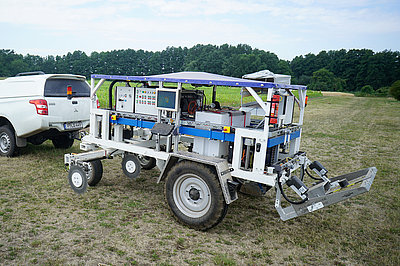
The research focus is on the further development of proximal soil sensor technology in order to be able to digitally record all information relevant for sustainable crop production, and on the development and application of biological sensor systems for analyzing soil health. Our objective is the sustainable use and improvement of the soil.
Plant health
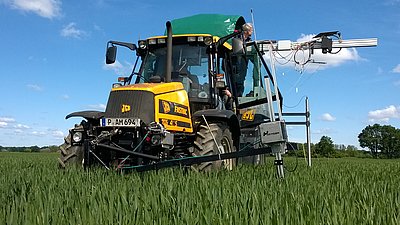
Our research focus is on a precise plant monitoring by using especially optical sensor systems like LIDAR or multispectral cameras - both in agriculture and in horticulture. Data from in-situ, proximity and remote sensing provide information on the status of plants as well as pathogens or pests. The aim of a precise plant monitoring is to design plant protection in an environmentally friendly way and to secure the food supply by strengthening plant health.
Automation
Digitization and robotics are to support diversity in agriculture in the long term as reliable control systems. Our research focus is on the identification and development of assistance systems as well as on automated and field robotics applications. Simulation and IoT technologies are used to develop and improve digital twins, highly automated field sensor systems, field machines and field robotics.
To the team of the programme area
Research projects
-
The DAKIS-pro project is developing an automated decision support system (EUS) that integrates ecosystem services (ES) and biodiversity (BioDiv) into agricultural utilisation. It takes site-specific and landscape context…
-
The AGRO-WELL project is addressing the challenging and hazardous conditions faced by workers in the agricultural sector, which is marked by high accident rates and health issues due to physical labor and repetitive task…
-
The quantiFARM project aims to develop cost-effective and mobile sensor systems to reduce environmentally harmful emissions in agriculture. By recording plant vitality and soil parameters, fertilisers and pesticides are …
-
European soils face significant health challenges, with 60-70% deemed unhealthy due to pollution, urbanization, intensive agriculture, and climate change. This degradation has severe economic, societal, and environmental…
-
The diversification of crop production systems in combination with a reduction in the use of agrochemicals and an increase in landscape complexity has the potential to promote biodiversity at the field and landscape scal…
More projects within the program area
Publications of the programme area
- Khoshnamvand, H.; Mousavi, S.; Darvishi, A.; Ahmadi, K.; Naghibi, A.; Janko, K.; Abdoli, A.; Ahmadzadeh, F. (2025): Macroecological predictors to determine future refuges of Luciobarbus species in the Tigris-Euphrates Basin: Rethinking conservation strategies and management. Global Ecology and Conservation. (January): p. 1-14. Online: https://doi.org/10.1016/j.gecco.2024.e03394 1.0
- Azimi, A.; Shamshiri, R.; Ghasemzadeh, A. (2025): Adaptives dynamisches Programmieren zur robusten Bahnverfolgung eines landwirtschaftlichen Roboters mithilfe kritischer neuronaler Netze. Agricultural Engineering. (1): p. 1-15. Online: https://www.agricultural-engineering.eu/landtechnik/article/view/3327 1.0
- Schweitzer, M.; Wassermann, B.; Abdelfattah, A.; Cernava, T.; Berg, G. (2025): Microbiome Literacy: Enhancing Public and Academic Understanding Through the ‘Microbiome & Health’ Online Course. Microbial Biotechnology. (70094): p. 1-6. Online: https://doi.org/10.1111/1751-7915.70094 1.0
- Awoke, M.; Löhr, K.; Kimaro, A.; Matavel, C.; Lana, M.; Hafner, J.; Sieber (2025): Understanding farmers choices in climate-smart agriculture: adoption of agroecology principles and impacts on rural livelihoods in semi-arid Tanzania. Agroecology and Sustainable Food Systems. : p. 1-28. Online: https://doi.org/10.1080/21683565.2025.2466439 1.0
- Sánchez, A.; Oliva, J.; Abdelfattah, A.; Torres, R.; Vilanova, L.; Teixidó, N. (2025): Exploring the impact of altitude variability and apple genotype on the epiphytic microbiome. International Journal of Agricultural Sustainability. (1): p. 1-13. Online: https://doi.org/10.1080/14735903.2025.2480955 1.0
- Kiplimo Gunia, D.; Mwirichia, R.; Wicaksono, W.; Berg, G.; Abdelfattah, A. (2025): Intrinsic and Acquired Antimicrobial Resistomes in Plant Microbiomes: Implications for Agriculture and Public Health. Journal of sustainable agriculture and environment. (1): p. 0. Online: https://doi.org/10.1002/sae2.70049 1.0
- Maß, V.; Alirezazadeh, P.; Seidl-Schulz, J.; Leipnitz, M.; Fitzsche, E.; Ibraheem, R.; Geyer, M.; Pflanz, M.; Reim, S. (2025): Annotated image dataset with different stages of European pear rust for UAV-based automated symptom detection in orchards. Data in Brief. (February): p. 111271. Online: https://doi.org/10.1016/j.dib.2025.111271 1.0
- Vogel, S.; Gebbers, M.; Schröter, I.; Schwanghart, W.; Bönecke, E.; Rühlmann, J.; Kramer, E.; Gebbers, R. (2025): Towards site-independent calibration of in situ soil pH sensor data: Relevance of spatial and temporal proximity, sample size and data spread for calibration model performance. Geoderma. (April 2025): p. 117261. Online: https://www.sciencedirect.com/science/article/pii/S0016706125000990 1.0
- Jakob, M. (2024): Hilfe beim Bücken für den Rücken. Bauernzeitung. Für Brandenburg, Mecklenburg-Vorpommern und Sachsen-Anhalt. (35. Woche): p. 34-34. 1.0
- Bonatti, M.; Lana, M.; Medina, L.; Chevelev, P.; Baldvieso, C.; Errismann, C.; Gleich, P.; Rodrigues, T.; Eufemia, L.; da Silva Rosa, T.; Borba, J.; Matavel, C.; Schlindwein, S.; Ison, R.; Eisenack, K.; Hellin, J.; Pacillo, G.; Vadez, V.; Bossuet, J.; Dolinska, A.; Sieber, S. (2024): Global analysis of social learning’s archetypes in natural resource management: understanding pathways of co-creation of knowledge. Humanities and Social Sciences Communications. : p. 0. Online: https://doi.org/10.1057/s41599-024-03590-5 1.0
More publications of the programme area

